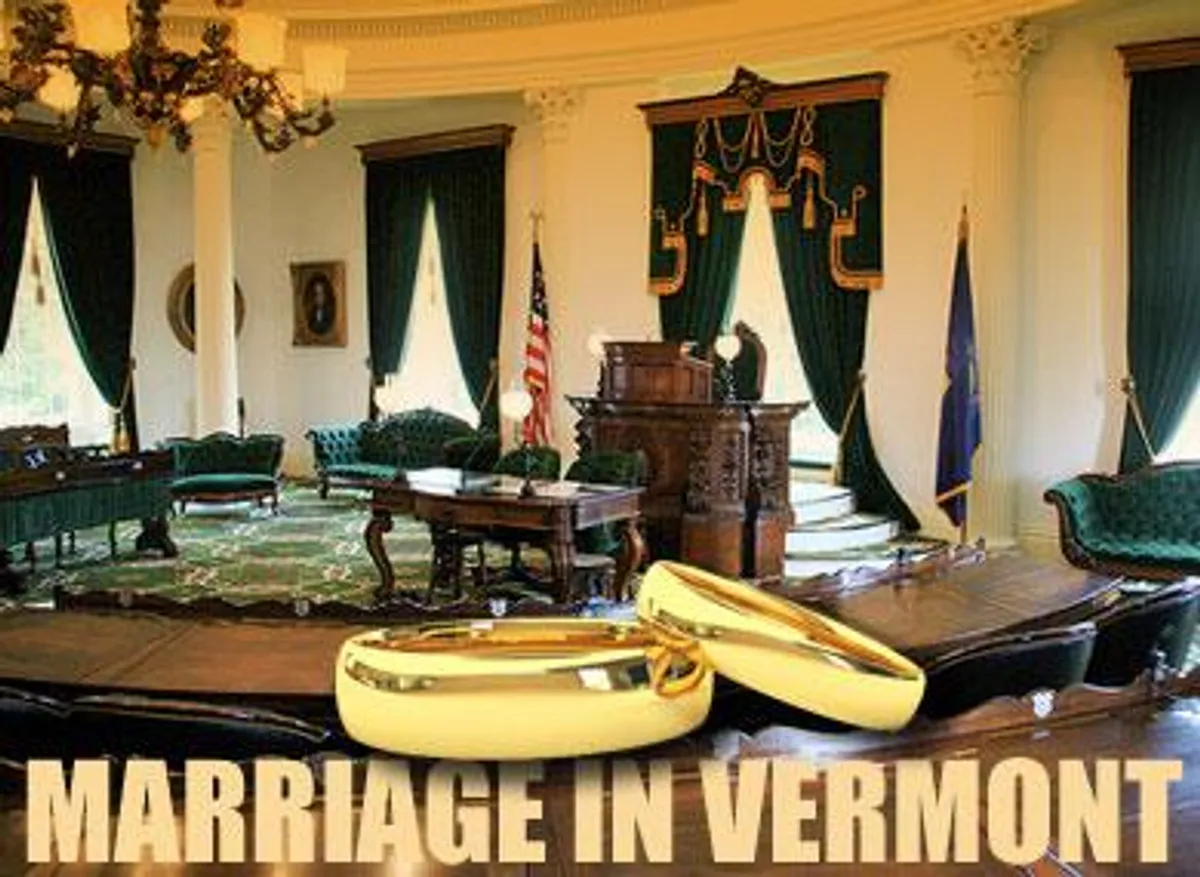
The Vermont senate overwhelmingly approved a bill on Monday that, if passed, would grant same-sex couples rights to marry in the state.
March 23 2009 12:00 AM EST
November 17 2015 5:28 AM EST
By continuing to use our site, you agree to our Private Policy and Terms of Use.

The Vermont senate overwhelmingly approved a bill on Monday that, if passed, would grant same-sex couples rights to marry in the state.
The Vermont senate overwhelmingly approved a bill on Monday that, if passed, would grant same-sex couples rights to marry in the state.
The senate approved the motion 26-4 on the second reading of the bill. The final reading, which will take place on Tuesday, is considered largely a formality, and the vote is not expected to change significantly.
There was a fierce debate on the bill, with arguments representing the full spectrum of opinions. Sen. John Campbell, chair of the senate judiciary committee and chief sponsor of the bill, said legislators had the duty to uphold the law while protecting religious freedom.
"We have taken an oath to ensure that we do not pass any law that is unconstitutional or that we find unequal," he said. "We will defend the Bible in church, and we will defend the constitution in here."
Campbell reiterated that the bill would not require religious institutions to perform marriage ceremonies for gay and lesbian couples. He also said the state would not change the language of paperwork from "bride and groom" to gender-neutral terminology.
Campbell drove home his observed cries of segregation from his Republican cohorts.
"Whenever the Republicans talk about gay marriage, it's always, 'they' and 'those people have enough rights,' 'those people should be arrested because that lifestyle is criminal.' ... But they are our policemen. They are our firefighters. They are our teachers. They are our garbagemen. They're our children, our brothers, and our sisters."
Sen. Kevin Mullins, who voted for the measure in the committee, backed a proposal to stage a nonbinding referendum in 2010 for Vermonters to weigh in on whether the state should grant marriages to same-sex couples.
Sen. Phil Scott agreed, saying that many of his constituents who contacted him wanted a chance to voice their opinions on the bill since the "rapid pace" of its progress prevented them from doing so (there was, however, a hearing March 18 for voters to speak out about it). The nonbinding referendum would be a way for voters to express their feelings about the proposal.
"In counseling it's part of the healing process," Scott said. "I'm sure there's going to be a lot of healing that will have to take place. I believe the nonbinding referendum would help. It wouldn't pass, but there would be a better feeling amongst Vermonters."
Sen. Dick Sears countered that allowing a vote, especially so far in the future, would bring out-of-state interests into Vermont, much like what happened with California's Proposition 8.
After some debate the proposal for the March 2010 referendum failed 19-11.
Rep. Mark Larson introduced the bill in the house in January with the backing of 59 other representatives. The house judiciary committee will begin taking testimony on Tuesday and expects it to take about a week for the bill to get to a floor vote.
A commission of legislative leaders formed last April to discuss whether the state should allow same-sex couples to marry. Though the panel concluded that instituting same-sex marriage would be positive for the state, it stopped short of suggesting that the state grant such marriage rights.